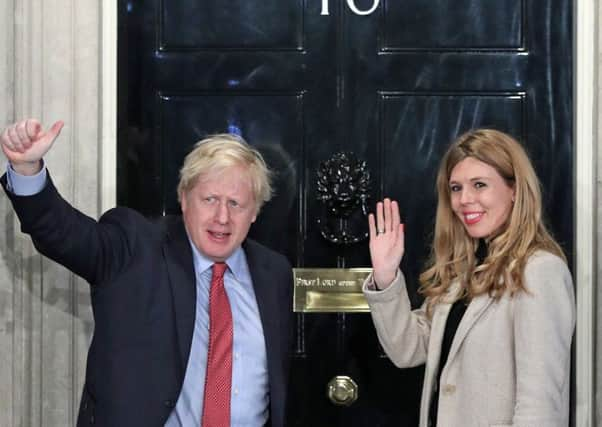General election: Why SNP and Tories should seek a compromise – leader comment


It’s not often a general election produces two big ‘winners’ – that’s not really supposed to happen.
But this general election saw Boris Johnson lead the Conservatives to their biggest win since 1987 in the heady days of Margaret Thatcher. Meanwhile in Scotland, the SNP’s result was arguably even more remarkable with the party securing 48 out of 59 seats. Not quite 2015, but still that means 81 per cent of Scotland’s MPs are Nationalists.
Advertisement
Hide AdAdvertisement
Hide AdHowever, their result was achieved on the basis of 45 per cent of the vote in Scotland and the Tories won 43.6 across the UK, so both these ‘majorities’ are actually based on ‘minorities’ and a product of the first-past-the-post system.
Amid their understandably triumphant celebrations, Johnson and Nicola Sturgeon now appear to be on a political collision course over a second independence referendum, a bitter and divisive constitutional clash of epic proportions.
However, they could attempt to take a different course, one of humility and respect for the different viewpoints of these two political tribes.
As he returned to 10 Downing Street, Boris Johnson said the UK “deserves a break from wrangling, a break from politics”, adding: “I urge everyone to find closure and to let the healing begin.”
And he is right about the need for healing. The UK is still divided along Leave/Remain lines while, for all Johnson and fellow unionists might wish it to be so, the large number of people who support Scottish independence are unlikely to simply give up. And there are other significant divides in the UK – between left and right, with newly enthused activists on both sides of the spectrum; young and old; urban and rural areas; north and south – that are problems for our society.
Rule by London diktat
The key questions are whether Johnson is serious about trying to heal the country or whether this is rhetoric in preparation for the looming fight with the SNP and if Sturgeon actually has an interest in joining in such a process, rather than stoking division as part of efforts to secure independence.
But if Scotland does ever leave the UK, it is most assuredly in its interests to maintain good relations with its nearest and dearest neighbour, just as it is in the UK’s interests to maintain good relations with the EU. Indeed, this would almost certainly be vital to making a success of an independent Scotland.
So it would be a mistake for the SNP to dismiss Johnson’s victory and his pledge to stop a second referendum. Political promises should be hard to break, particularly for a Prime Minister with a reputation for being, perhaps, too ‘economical with the actualité’.
Advertisement
Hide AdAdvertisement
Hide AdAnd, likewise, it would be a mistake for Johnson to add to the sense of nationalist grievance by acting in a high-handed way that could be portrayed as rule by London diktat.
They may not like it, in fact, they may absolutely hate it, but they might be better advised to seek some form of compromise, to find an acceptable middle ground.
Quite what that would be is hard to say. But it could be more powers for Scotland or perhaps an agreement to allow a second indyref2 if the SNP wins the next Holyrood election. Some commentators believe it would be politically untenable to deny a second vote if Sturgeon wins in 2021; if that is the case, it might make more sense for Johnson to allow it and focus on ensuring an SNP defeat, rather than rail against it, only to later concede.
Smart politics is not always about being tough. There are powerful forces that could easily push them into an increasingly bitter conflict but, surely, in the long run, that would be in no one’s interest.
